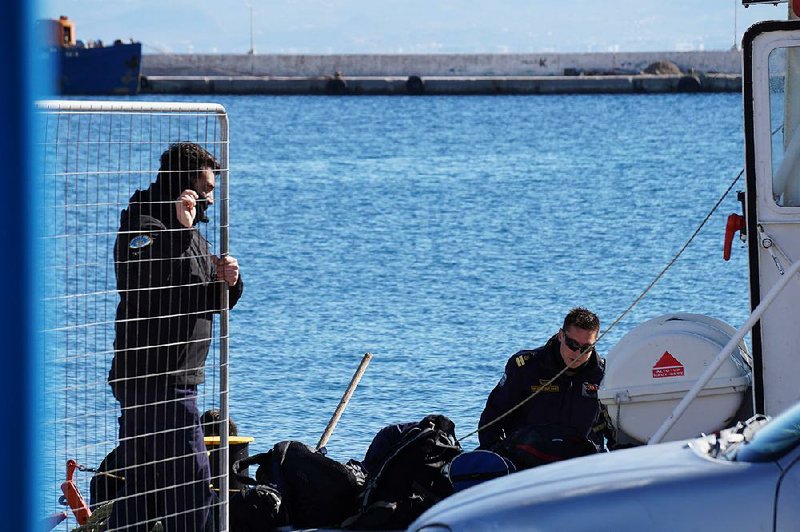ATHENS, Greece -- At least 46 people, including 17 children, drowned Friday in the Aegean Sea as two smuggling boats sank off different Greek islands. A search-and-rescue operation was underway for others feared trapped in the wreckage.
The Greek coast guard and other boats pulled some of the more than 70 survivors from the sea.
The new drownings follow hundreds over the past year as Europe faces its worst immigration crisis since the end of World War II. More than 1 million people seeking asylum have entered the continent in 2015 -- most through Greece, coming across the sea in smugglers' small boats from Turkey.
In the first sinking Friday in the eastern Aegean Sea, a wooden boat carrying 49 people foundered off the small Greek islet of Farmakonissi. Forty people managed to make it to shore, while authorities rescued one girl and recovered eight bodies from the sea -- six children and two women, the coast guard said.
A few hours later, a wooden sailboat carrying an undetermined number of people sank off the islet of Kalolimnos, south of Farmakonissi. The coast guard rescued 22 men and four women, and recovered 34 bodies -- those of 16 women, seven men and 11 children.
One survivor told APTN that the vessel's engine failed about 3 a.m., five hours after they departed from Izmir in Turkey. Speaking at a reception center on the island of Kalymnos, he said about 80 people onboard had paid $2,500 each for a berth, with half that sum for children.
Later, Turkey's state-run Anadolu news agency said the Turkish coast guard rescued six survivors from the area of the two accidents and found another three bodies.
The United Nations refugee agency said daily arrivals on the Greek islands have surged to more than 3,000 in the past two days, and it cited refugee testimony that smugglers have recently halved their rates amid deteriorating weather conditions.
"It is tragic that refugees, including families with young children, feel compelled to entrust their lives to unscrupulous smugglers in view of lack of safe and legal ways for refugees to find protection," said Philippe Leclerc, representative of the United Nations High Commissioner for Refugees in Greece.
The European Union is deeply divided on addressing the influx, with several countries blocking or restricting migrants from entering and resisting plans to share the burden of refugees. In the meantime, Germany -- where most immigrants are heading -- has welcomed those it considers refugees.
German Chancellor Angela Merkel met Turkish Prime Minister Ahmet Davutoglu in Berlin and pledged to continue to work intensively together not only to stem the flow of people but also to improve conditions in camps in Turkey and to try to bring about a peace deal in Syria.
"The refugee crisis is not Germany's crisis, it is not Europe's crisis, it is not Turkey's crisis," Davutoglu said in a news conference with Merkel. "It is a crisis that was born out of the crisis in Syria. If we cooperate, we can bring this crisis under control."
Turkey hosts more than 2.2 million Syrian refugees from a nearly five-year civil war that has killed a quarter of a million people and displaced half the country.
Davutoglu praised Merkel for her open-door stance, saying the steps she took "will go down in history. The people of Syria will never forget this humanitarian stance."
EU foreign-policy chief Federica Mogherini said Friday that the 28-nation bloc faces big economic risks if its member countries start putting up walls between each other, because of the refugee crisis, that restrict borderless travel.
"We are doing studies of that and it is impressive," she said, speaking at the World Economic Forum in Davos, Switzerland.
But Hungary's prime minister, who last year built fences on his nation's borders with Serbia and Croatia to stop asylum seekers from entering, praised Austria for setting a cap this week on the numbers of refugees it will take.
"Common sense has prevailed," Viktor Orban said Friday on state radio, calling the Austrian decision "the most important news of the past months."
"Europe can't take in huge masses of foreign people in an unlimited, uncontrolled manner," he said, adding that, for Hungary, "the best migrant is the migrant who does not come."
A Section on 01/23/2016


